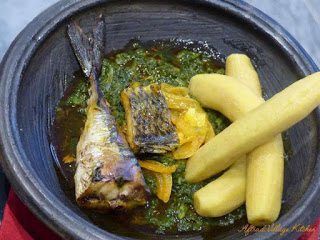I cannot end my discussions on hotel kitchens without touching on menus and Ghanaian foods. This article therefore attempts to fuse two articles into one, realizing that this is the last week of the month of March and I will be dealing with food service next month.
In some countries, cook trainees pursue chefs to be mentored by them. The word ‘chef’ means ‘chief’ in French and as such the Chef is in charge of the kitchen and is the chief cook. It is a title and position which carries status and you would never address the Executive Chef or Chef de Cuisine by his or her first name while in the kitchen. Such kitchens seem to be ‘sacred’.
Over a pot, the chef stirs and drops in various ingredients and demonstrates his/her culinary art as trainees engage in various tasks under supervision. They watch and ask questions as a variety of foodstuffs/ingredients are metamorphosed into amazing tastes with flavors and aromas. Food is magical; the Chef’s vast knowledge of food properties guides him/her in the choice of foodstuffs to use. Reading the experiences of famous chefs overseas who train and mentor trainees, this must be rewarding venture.
I give thumbs-up for those offering in-service training no matter the industry.
I have also often wondered what frustrates chefs in Ghana the most. I find it frustrating looking for specific products in our markets. Unlike other countries where food regulatory agencies are effective and there are established specifications for commodities, Ghana hotel kitchens suffer from the lack of formal grading and specification of food commodities. I think this is a reflection of the underdeveloped state of our food service industry creating a rippling effect which impacts negatively on the growth of the hotel industry despite the changing skyline of modern architectural designs of structures our hotels are ‘showing off’ with.
In addition to making purchasing easier, standardization and grading of commodities enhances the development of standard recipes where one is able to achieve yield menu items and meet quality requirements. Foodstuffs such as plantains, yams, sweet potatoes, tomatoes, okro and garden eggs all have varieties with distinct characteristics during cooking. When it comes to meats and poultry products including eggs all need to be graded. Quality determination of commodities is a whole industry in the making! Ghana seems to be crawling at the age of 60 years in these areas.
In the above picture which shows just one of several delicacies in the portfolio of Ghanaian foods, achieving consistency in color, texture, taste and flavor from even one hotel kitchen is a challenge. Why?
Further, the average Ghanaian is quite conservative when it comes to traditional /authentic Ghanaian dishes. Don’t be surprised if those who ‘own’ this food, nkontomire and apim, find it more enjoyable eating from the asanka than in an appropriate deep porcelain bowl.
Personally, I get disappointed at presentations which have no flair or style especially from Chefs in hotel kitchens. Apart from the issue of appropriate service ware to serve the food in, how food is presented in a service ware is a whole art which I think we are yet to explore.
I smiled at recent comments on social media about fufu (braised beef, manioc(which is cassava), plantain and yam, priced on the menu of a hotel at GHC110.00 while Banku, pan fried tilapia, fermented corn and mixed peppers, is priced at GHC105.00. I don’t intend to make any comments until I see how the foods were plated.
Serving waakye in leaves has returned! I am yet to see a hotel venture into ‘plating’ waakye on leaves too but with some flair. It will be a whole experience eating it in an ambiance of a 4-5 star hotel restaurant; and this experience would be an add-on which I may not mind paying for.
The other concern I have is the under-utilization of computers in hotel kitchens. I know few are using the technology to communicate between the kitchen and the restaurant. What I would really love to see is a menu engineering software of Ghanaian foods. This would be real progress in ‘Kojokrom’ but is this possible without the specification and grading system mentioned earlier?
